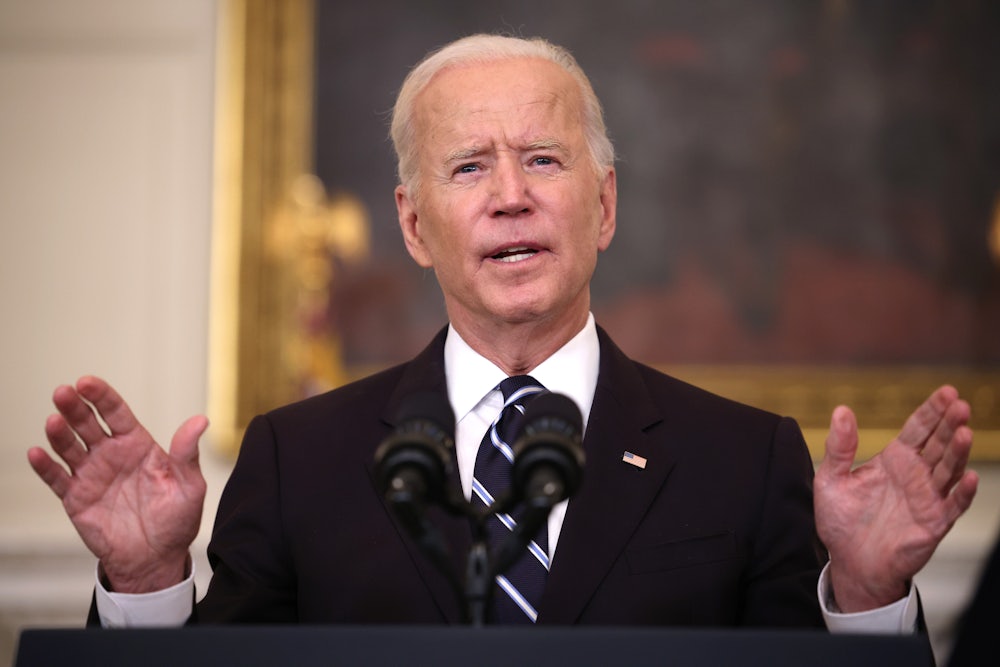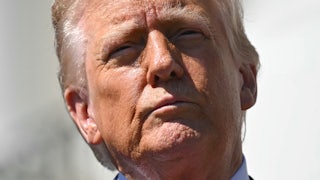For many people, the turning point was in mid-July: the moment the delta variant started to surge out of control and “hot vax summer” became the summer of hastily canceled plans, harsh recriminations, and fears for autumn. But experts I’ve spoken to said the turning point came earlier: May 13. That was the day Dr. Rochelle Walensky, director of the U.S. Centers for Disease Control and Prevention, told Americans that if they were vaccinated, they could begin returning to their normal lives.
While many in the public understandably celebrated the news that they could unmask indoors and cease social distancing, public health experts were alarmed: Once mask recommendations were lifted, they warned, people wouldn’t want to go back. And individualizing health—“Your health is in your hands,” Walensky tweeted while essentially telling the vaccinated to do whatever they liked—could be dangerous in a pandemic where collective action is paramount.
But Biden’s speech on Thursday, laying out a new six-pronged approach, may signal a new direction in the evolving Covid crisis. While the president might still be relying on vaccines too much in a country riven by vaccine politicization, he crucially included other approaches as well, and emphasized a message that Americans desperately need public officials to admit: that our health is intimately linked to the decisions others make.
Biden’s speech started off in expected ways. He talked about what he sees as his administration’s victories—safe and effective vaccines widely available for free, in addition to economic growth. He repeated the troubling phrase “pandemic of the unvaccinated,” which is “keeping us from turning the corner.” The vocal minority of politically motivated leaders denigrating the vaccines, he said, “stand in the way of protecting the large majority of Americans who have done their part.”
But then he went in a new direction, announcing that all large businesses, with more than 100 employees, must mandate vaccines or weekly testing for those who opt not to get the shot. “Bottom line, we’re going to protect vaccinated workers from unvaccinated co-workers,” he said, echoing other leaders, like French President Emmanuel Macron, who have prioritized safety over personal choice—a major swerve from “your health is in your hands.” (Macron put it even more forcefully: “What is your liberty worth if you tell me you don’t want to get vaccinated?” the French president said in late July. “And tomorrow, you infect your father, your mother, or myself. I am a victim of your freedom.”)
Some 80 million workers in the private sector will fall under the new rule. But even this rule has gaps, and other measures are needed. About 50 million, or 38 percent, of private sector workers aren’t covered by this plan because they work for small businesses—including half of Latinx private sector workers, Justin Feldman, a social epidemiologist at the Harvard FXB Center for Health & Human Rights, said on Twitter. It will also be difficult for the Labor Department to enforce these mandates, he pointed out, and there may be legal challenges.
“These steps align nicely with the authority of federal agencies, but it’s certainly possible they’ll be challenged in court if proper procedures aren’t followed to implement the new requirements,” Professor Lindsay Wiley, director of the Health Law and Policy Program at American University, told me in an email. “Nothing exactly like this has been done before, but that’s because we’ve never faced exactly this situation before with a new vaccine available and a large population to vaccinate.”
The administration is relying on the Occupational Safety and Health Act and Medicare and Medicaid, which were implemented after eradication or herd immunity had already been achieved for other major vaccine-preventable infections like smallpox, measles, and pertussis, Wiley said. “To maintain herd immunity, modern vaccination laws focus primarily on ensuring children are vaccinated as a condition of entering school. Covid presents a different situation, where many more adults need to be vaccinated to get the pandemic under control.”
Employers with 100 or more workers are also now required to offer paid time off for those getting and recovering from the vaccines, what Biden called “one of the last remaining obstacles” to increasing vaccination rates. “No one should lose pay in order to get vaccinated or take a loved one to get vaccinated,” he said.
The administration had previously announced that all employees of long-term care facilities receiving Medicaid or Medicare payments must be vaccinated, and on Thursday, Biden took that a step further. “I’m using that same authority to expand that to cover those who work in hospitals, home health care facilities or other medical facilities—a total of 17 million health care workers,” he said. “If you’re seeking care at a health facility, you should be able to know that the people treating you are vaccinated. Simple, straightforward, period.” Unlike the “vaccinate or test” requirements for businesses, which Wiley calls a “soft” mandate, this means that any health care worker who wants to substitute regular testing for a vaccine has to receive a formal exemption.
Biden also pleaded with families to vaccinate their eligible children. Research published by the CDC on Friday found that unvaccinated kids were 10 times more likely than vaccinated peers to be hospitalized from June 20 to July 31. Those too young to get shots need to be protected by a ring of vaccinated family members and caregivers, Biden said. He also urged the U.S. Food and Drug Administration to review the emergency use authorizations of the vaccines for those under the age of 12 “as safely and quickly as possible.” And he announced another 500 million vaccines would be donated to 100 lower-income countries where vaccine supply has lagged as wealthy countries hoard doses.
Then, crucially, Biden went beyond vaccines. He took on governors blocking mask mandates, saying the federal government will cover the salaries of any school employees who mandate masks despite leaders’ orders. Shipment times of monoclonal antibodies, a treatment that is highly effective if taken early in the course of illness, will be cut in half in order to speed up delivery to states.
Biden plans to invoke the Defense Production Act to increase the production of rapid tests, including home tests, which have been plagued by low supply and high prices. He also announced that the administration has worked with certain retailers, including Walmart, Amazon, and Kroger, to cut prices of the tests 35 percent by next week. Having enough tests, both rapid and lab-confirmed, will be crucial for workers who choose a weekly test instead of getting vaccinated. States are already reporting test backlogs of several days, and adding more surveillance testing would increase these times if testing capacity isn’t expanded.
All elements of this plan will take time. Last week, one million Americans tested positive for Covid-19. Vaccine mandates won’t stop the 140,000 new cases tomorrow or the next day. And deaths usually trail cases by a few weeks, which means we likely have not hit the peak of the preventable loss of life in this surge. We still have an urgent need for other measures, particularly masks, testing, and resources for those who test positive to isolate. But in the long term, this plan could help quell the next surge before it gets going—if only we stick to it.
“We have the tools. Now we just have to finish the job,” Biden said. He ended with his fist in the air but his voice a soft whisper: “Get vaccinated.” It’s not as dramatic an ending, but he could have added another message: Until that happens, we all need to mask up, test frequently, and slow the virus’s evolution and spread. C’mon, man.




